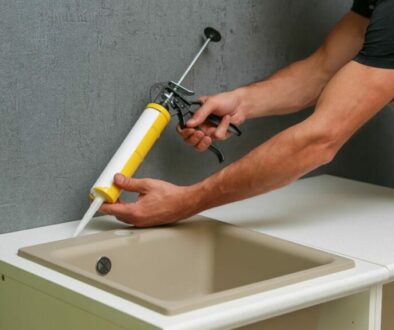What Are Nailing Skills?
Nailing skills are essential abilities that help individuals to succeed in the workplace and in their personal lives. These skills include a range of interpersonal and technical abilities that allow people to complete tasks effectively, communicate with others, and manage their time wisely. In this article, we will explore the meaning of nailing skills, examples of these skills, how to improve them, and why employers often look for people who possess excellent nailing skills.
Nailing Skills Examples
There are many examples of nailing skills that individuals can develop to achieve their goals. These skills are not only important for career advancement, but also for personal growth and development. Some of the most common nailing skills that employers look for when hiring or promoting staff include:
Effective Communication
Excellent verbal and written communication skills are essential for building relationships, resolving conflicts, and managing projects effectively. Individuals who possess these skills are able to express their ideas clearly and concisely, listen actively to others, and provide constructive feedback. Effective communicators are also able to adapt their communication style to different audiences and situations.
For example, a salesperson who has excellent communication skills can effectively present the benefits of a product to potential customers, answer their questions, and address their concerns. A project manager who has strong communication skills can clearly communicate project goals and expectations to team members, provide feedback on their performance, and resolve conflicts that may arise.
Time Management
The ability to prioritize tasks, allocate resources, and meet deadlines is critical in any job or personal project. Individuals who possess strong time management skills are able to manage their time effectively, avoid procrastination, and stay focused on their goals. They are also able to balance their work and personal life, and avoid burnout.
For example, a student who has strong time management skills is able to balance their coursework, extracurricular activities, and social life without sacrificing their grades or mental health. An entrepreneur who has strong time management skills is able to manage their business operations, meet customer demands, and pursue new opportunities without feeling overwhelmed.
Critical Thinking
The capacity to analyze data, evaluate arguments, and solve complex problems is crucial for making sound decisions in the workplace. Individuals who possess strong critical thinking skills are able to identify the root cause of a problem, evaluate different solutions, and make informed decisions based on available evidence.
For example, a data analyst who has strong critical thinking skills is able to analyze large datasets, identify patterns and trends, and draw meaningful insights that can inform business decisions. A manager who has strong critical thinking skills is able to evaluate different options, weigh the pros and cons, and make decisions that align with the organization’s goals.
Adaptability
The ability to adapt to changes in the workplace, learn new skills, and assimilate new information is a highly valued skill. Individuals who possess strong adaptability skills are able to embrace change, remain flexible, and thrive in dynamic environments.
For example, an employee who has strong adaptability skills is able to quickly learn new software programs, adapt to changes in work processes, and take on new responsibilities as needed. A manager who has strong adaptability skills is able to adjust their leadership style to different team members, respond to changing market conditions, and pivot the organization’s strategy when needed.
Leadership
The capability to inspire, motivate, and manage people is essential for achieving organizational objectives. Individuals who possess strong leadership skills are able to communicate a clear vision, build a high-performing team, and drive results.
For example, a CEO who has strong leadership skills is able to inspire their employees, align their goals with the organization’s mission, and steer the company towards success. A team leader who has strong leadership skills is able to motivate their team members, provide guidance and support, and hold them accountable for their performance.
Developing these nailing skills takes time, effort, and practice. However, individuals who invest in their personal and professional development by acquiring these skills are more likely to succeed in their careers and achieve their goals.
How Do You Improve Nailing Skills?
Improving your nailing skills is an important aspect of any trade or profession that requires precision and accuracy. Whether you are a carpenter, a construction worker, or a DIY enthusiast, mastering the art of nailing can help you achieve better results and save time and effort.
One of the best ways to improve your nailing skills is to practice regularly. By dedicating time and effort to honing your skills, you will gradually become more proficient and confident in your abilities. You can find numerous online courses, books, and workshops that can help you learn new techniques and improve your existing skills.
Another effective way to improve your nailing skills is to seek feedback from others. Getting constructive feedback from your peers and managers can help you identify areas where you need to improve and build on your strengths. By listening to feedback and incorporating it into your practice, you can become a more skilled and effective nailer.
Emulating role models is another great way to improve your nailing skills. By observing and learning from the techniques used by mentors, colleagues, and industry leaders, you can gain valuable insights into what works and what doesn’t. You can also learn from their successes and failures, which can help you avoid common mistakes and improve your own technique.
Finally, continuous learning is essential for anyone who wants to improve their nailing skills. By staying up-to-date with the latest tools, technologies, and best practices in your field, you can ensure that your skills remain relevant and effective. Reading industry publications, attending conferences, and enrolling in courses are all great ways to stay informed and keep your skills sharp.
So if you want to improve your nailing skills, remember to practice regularly, seek feedback, emulate role models, and stay up-to-date with the latest trends and techniques. With dedication and hard work, you can become a master nailer and achieve great results in your work or projects.
Why Do Employers Look for Nailing Skills?
When it comes to nailing skills, it’s not just about hammering nails into wood or other materials. It’s about having the ability to focus on the task at hand, pay attention to details, and work with precision and accuracy. These skills are highly valued in many industries, including construction, manufacturing, and even in office settings.
In the construction industry, for example, nailing skills are essential for building sturdy and safe structures. A single mistake in nailing can compromise the integrity of a building, putting the safety of workers and occupants at risk. Therefore, employers in this industry are always on the lookout for candidates with excellent nailing skills.
Manufacturing companies also require employees with nailing skills to assemble products efficiently and accurately. Whether it’s assembling furniture, electronics, or other products, having good nailing skills can make the difference between a well-made and a poorly-made product.
Even in office settings, nailing skills are highly valued. For example, if you’re working on a project that involves creating a presentation, having good nailing skills can help you create a polished and professional-looking product. You’ll be able to align text and images perfectly, use the right fonts and colors, and create a cohesive design that effectively communicates your message.
So, whether you’re working in construction, manufacturing, or an office setting, having excellent nailing skills can help you stand out from the crowd and succeed in your career. By honing these skills and showcasing them to potential employers, you can increase your chances of landing your dream job and achieving your career goals.
Developing nailing skills is essential for anyone looking to succeed in their personal and professional lives. Through regular practice, seeking feedback, emulating role models, and continuous learning, you can improve your nailing skills and position yourself as a valuable asset to your employer or organization. Remember, by mastering these skills, you open up new opportunities and increase your chances of achieving your goals.




